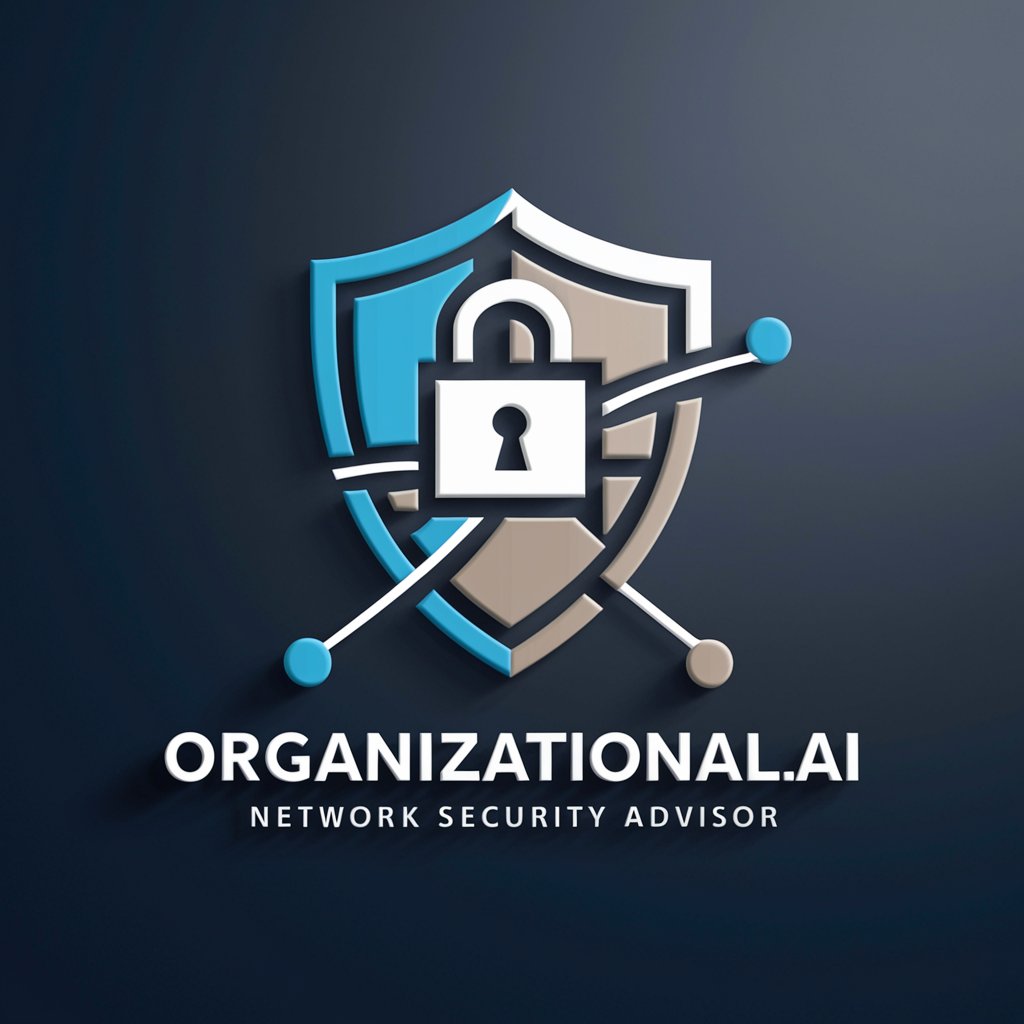
Network Security Advisor - Network Security Insights

Welcome to Organizational.AI Network Security Advisor.
Empowering Security with AI
Create a network security policy that...
Develop a vulnerability assessment plan for...
Design a secure network architecture suitable for...
Outline a security incident response strategy that...
Get Embed Code
Overview of Network Security Advisor
The Network Security Advisor is a specialized role or system designed to safeguard an organization's computer networks and systems. It focuses on planning and implementing security measures to protect sensitive data and systems from infiltration and cyber-attacks. This role encompasses a wide range of responsibilities, including the development of security policies, conducting vulnerability and security assessments, monitoring networks for security breaches, investigating violations, and mitigating potential threats. An example scenario illustrating its purpose could involve detecting and responding to a ransomware attack, where the advisor would identify the breach, contain the attack to prevent further damage, and recover the affected systems while ensuring minimal impact on business operations. Powered by ChatGPT-4o。

Key Functions of Network Security Advisor
Develop and Implement Security Policies
Example
Creating a comprehensive cybersecurity policy that dictates how an organization's data should be protected, including the use of strong passwords, multi-factor authentication, and regular software updates.
Scenario
A scenario for this function could involve an organization facing regulatory compliance requirements. The Network Security Advisor assesses the current security posture, identifies gaps, and develops a set of policies that ensure compliance with standards such as GDPR or HIPAA.
Perform Vulnerability Assessments
Example
Using tools and techniques to scan the network for vulnerabilities that could be exploited by attackers, such as outdated software or unsecured network ports.
Scenario
In a real-world scenario, before deploying a new application, the advisor performs a vulnerability assessment to identify and remediate potential security weaknesses, ensuring the application is secure before it becomes accessible.
Monitor Networks for Security Breaches
Example
Implementing intrusion detection systems (IDS) and security information and event management (SIEM) solutions to continuously monitor the network for malicious activity or policy violations.
Scenario
A financial institution utilizes continuous monitoring to detect unusual transaction patterns that could indicate a breach, allowing for immediate investigation and response to prevent financial loss.
Investigate Security Violations and Mitigate Threats
Example
Conducting forensic analysis following a security breach to determine the cause, extent of the breach, and implementing measures to prevent future occurrences.
Scenario
Following a data breach, the advisor leads an investigation to identify the breach source, assesses the impact, and develops a mitigation plan to secure the network and prevent similar attacks.
Provide Technical Security Advice
Example
Advising on the secure configuration of network devices and systems, encryption standards, and best practices for data protection.
Scenario
An advisor might consult with the IT department during the deployment of a new wireless network to ensure it is configured with the latest security protocols and strong encryption to protect against unauthorized access.
Target User Groups for Network Security Advisor Services
IT Departments
IT departments across various industries stand to benefit significantly from Network Security Advisor services. These services provide the necessary expertise to identify and mitigate security vulnerabilities, ensuring the integrity and confidentiality of business data and IT systems.
Small and Medium-Sized Enterprises (SMEs)
SMEs often lack the specialized knowledge or resources to manage their network security effectively. Network Security Advisor services can offer tailored solutions that address specific security challenges, enabling these businesses to protect themselves against cyber threats without the need for a large in-house security team.
Financial Institutions
Given the sensitive nature of their data and the regulatory requirements they must comply with, financial institutions are ideal users of Network Security Advisor services. These services can help in implementing robust security measures to protect against fraud and cyber-attacks, while also ensuring compliance with financial regulations.
Healthcare Providers
Healthcare providers handle highly sensitive personal health information, making them prime candidates for Network Security Advisor services. These services can assist in securing patient data in compliance with HIPAA and other healthcare regulations, while also protecting against data breaches and cyber threats.

How to Use Network Security Advisor
1
Access the platform by visiting a designated website for a no-cost trial, where registration or ChatGPT Plus subscription is not required.
2
Identify your network security needs or concerns to tailor the advisory services provided.
3
Engage with the tool by inputting specific questions or scenarios related to network security.
4
Utilize the feedback and recommendations provided to enhance your network security posture.
5
Regularly consult the Network Security Advisor for ongoing advice and to stay informed about emerging threats and trends.
Try other advanced and practical GPTs
Training Material Design Advisor
Revolutionize Learning with AI-Powered Training Design

Affiliate Sales Advisor
Empowering Affiliate Growth with AI
Operational Risk Advisor
AI-driven Risk Mitigation Insights
HR Partnering Generalist Advisor
Empowering HR with AI
Performance Controlling Advisor
Strategize Financially with AI
Material Science Advisor
Empowering Projects with AI-Driven Material Science

Community Engagement Advisor
Empowering Community Relations with AI
Process Engineering Advisor
AI-powered Process Engineering Expertise

Call Center Operations Advisor
AI-driven Call Center Excellence

Experience Strategy Advisor
Empowering Customer Experience with AI
Quality Assurance Advisor
Elevating Quality with AI

Biochemical Engineering Advisor
Optimize Bio-Processes with AI
Network Security Advisor FAQs
What makes Network Security Advisor unique?
The Advisor combines AI-driven insights with up-to-date knowledge on network security, offering tailored advice to protect against cyber threats.
Can Network Security Advisor help with compliance?
Yes, it provides guidance on adhering to standards like GDPR, PCI DSS, and more, ensuring your network meets regulatory requirements.
How does the Advisor stay current with new threats?
It continuously updates its knowledge base with the latest threat intelligence and security trends to offer relevant advice.
Is Network Security Advisor suitable for small businesses?
Absolutely, it's designed to provide valuable security insights regardless of the size of your organization.
How can I integrate Network Security Advisor into my security practices?
Incorporate its recommendations into your security policies, routine checks, and incident response plans for a strengthened security posture.